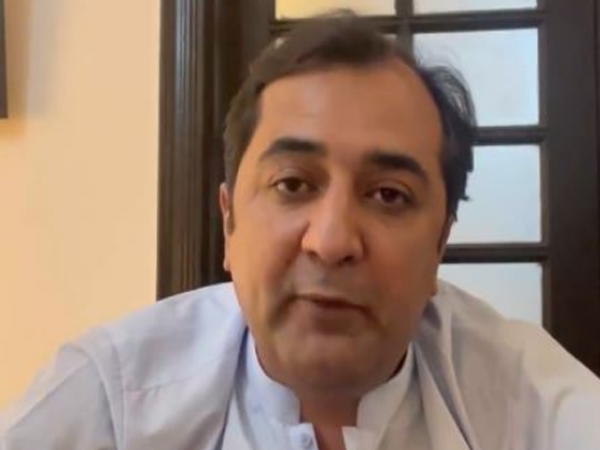By flirting with isolationism, Trump could be teeing up a third world war

Throughout his presidential campaign, Donald Trump repeatedly opined that the US should no longer serve as the world's policeman. He publicly questioned what the US gets out of its military presence in South Korea and Japan, where it plays a strategic role in facing down China and North Korea. He also expressed admiration for Vladimir Putin, and indicated that Russia's actions in Ukraine are legitimate (to the extent that he's even acknowledged them).
Many optimists would argue that Trump's bluster on the campaign trail won't actually predict how he behaves in office. As they see it, depending on who he appoints to advise him and execute his policy, his overall foreign affairs priorities might not ultimately deviate much from American orthodoxy. Still, one could hardly blame Putin or North Korea's Kim Jong-Un for gambling on it if they chose to attack traditional US allies in the Baltic States or East Asia.
Trump's carefree campaign-trail isolationism has put the US in a dangerous bind. Should his advisers manage to convince him that the US's commitment to NATO and its partnerships with key allies in East Asia really do matter, he will be in the unusual position of having to prove the US's commitment, which has gone without saying in the past. In a worst case scenario, the result could be tens of thousands or even hundreds of thousands of fatalities.
Facing off
Wars are less common than many people appreciate. From a humanitarian perspective, of course, they aren't rare enough - but the forces pushing towards peace are more effective than we often give them credit for.
Similarly, at any given time, there's at least one war taking place somewhere in the world - yet most countries, most of the time, are at peace. That much is clear from a look at Militarized Interstate Dispute data, a database of all incidents where one country threatened to use force against another, engaged in a hostile display of force, or actually did use force. Roughly 94% of all MIDs end short of war. As an analogy, remember that for your every birthday, you also experience 364 or 365 unbirthdays.
Even when countries disagree with each other strongly enough that they threaten to attack one another, or go as far as to call up the reservists, or violate one another's air space, peace almost always prevails. So if we want to understand why wars occur, it's not enough to ask where the different sides disagree; the question is why their disagreement couldn't be resolved peacefully, as the vast majority are.
One of the best explanations that scholars have come up with is that states sometimes push too far when they don't know what they can get away with. That is, even those who do not desire war for its own sake might accept some risk of accidentally provoking one in hopes of revising the status quo.
According to this argument, most wars occur not because of greed or intolerance - factors that were surely present to one degree or another in the 94% of disputes that didn't become wars - but because those who desire peace also care about the terms on which they get it. The problem is particularly acute when states signal that they're unwilling to defend something, but ultimately decide it is worth defending after all.
This is roughly the story of two of the US's most important military ventures: the Korean War of 1950-53 and the First Gulf War in 1990-1.
Over the line
In his detailed account of the Korean War, The Coldest Winter, David Halberstam explains how from 1945 on, Korean communist leader Kim Il-Sung sought Soviet premier Joseph Stalin's permission to unite the Korean peninsula by force. Every time he brought the matter up, Stalin ordered him to sit tight because he feared a war with the US.
But in 1949, US Secretary of State Dean Acheson gave a commencement speech at the US Military Academy at West Point in which he outlined a "defence perimeter" or areas of the globe that were vital to US interests. The Korean peninsula went conspicuously unacknowledged. When Kim next asked Stalin to green-light an offensive, Stalin relented - though as Halberstam tells it, he told Kim that if he got into trouble, he'd have to ask Mao Tse-Tung for help.
Unfortunately for Kim, it turned out that the US was in fact willing to go to war to defend South Korea. Had the secretary of state communicated this clearly in 1949, there might never have been a war from 1950 to 1953.
Similarly, just three days before the invasion of Kuwait in 1990, Ambassador April Glaspie reassured Iraqi President Saddam Hussein that the US had friendly intentions towards Iraq and had "no special defense or security commitments to Kuwait". Small wonder, then, that Hussein did not back down when the US threatened to go to war if he didn't withdraw his forces - but unfortunately for him, President George H. W. Bush decided that he was willing to go to war after all.
Taken alongside all this history, Trump's noncommittal pronouncements are especially troubling. It's all too easy to see why Putin or Kim might think he would let them get away with things they've so far deemed too risky.
It's also frighteningly easy to imagine that any new conflict on the Korean peninsula might once again elicit Chinese military intervention. The Chinese leadership has surely not forgotten that the last time the US intervened to defend South Korea from Communism, its goal shifted to Korean unification once the war was underway. If Western forces push past the 38th parallel once more, raising the possibility that new US military bases could be set up less than a mile from Chinese territory, even a cautious Chinese Communist Party might feel compelled to act.
Either way, it's all deeply worrying. If Trump's laissez-faire, isolationist posturing is borne out in his presidency, the US's biggest rivals may embark on some dangerous new ventures; if he tries to prove he is in fact prepared to defend his allies, he could spur them into defending their interests with force. The result could be a return to warfare on a scale not seen in decades.
I for one hardly hope to see the US abandon its key allies. But that's exactly why the countdown to Trump's inauguration is so troubling. If Putin and Kim respond to Trump's comments the way leaders have often responded to American isolationism, there is no best case scenario.
This article was originally published on The Conversation. Read the original article.
First published: 11 December 2016, 3:27 IST
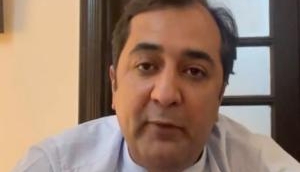
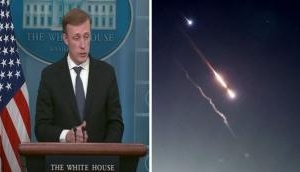
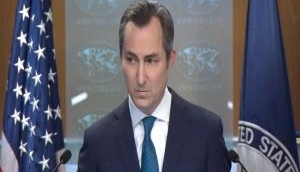

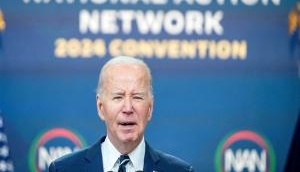
![BJP's Kapil Mishra recreates Shankar Mahadevan’s ‘Breathless’ song to highlight Delhi pollution [WATCH] BJP's Kapil Mishra recreates Shankar Mahadevan’s ‘Breathless’ song to highlight Delhi pollution [WATCH]](http://images.catchnews.com/upload/2022/11/03/kapil-mishra_240884_300x172.png)

![Anupam Kher shares pictures of his toned body on 67th birthday [MUST SEE] Anupam Kher shares pictures of his toned body on 67th birthday [MUST SEE]](http://images.catchnews.com/upload/2022/03/07/Anupam_kher_231145_300x172.jpg)




